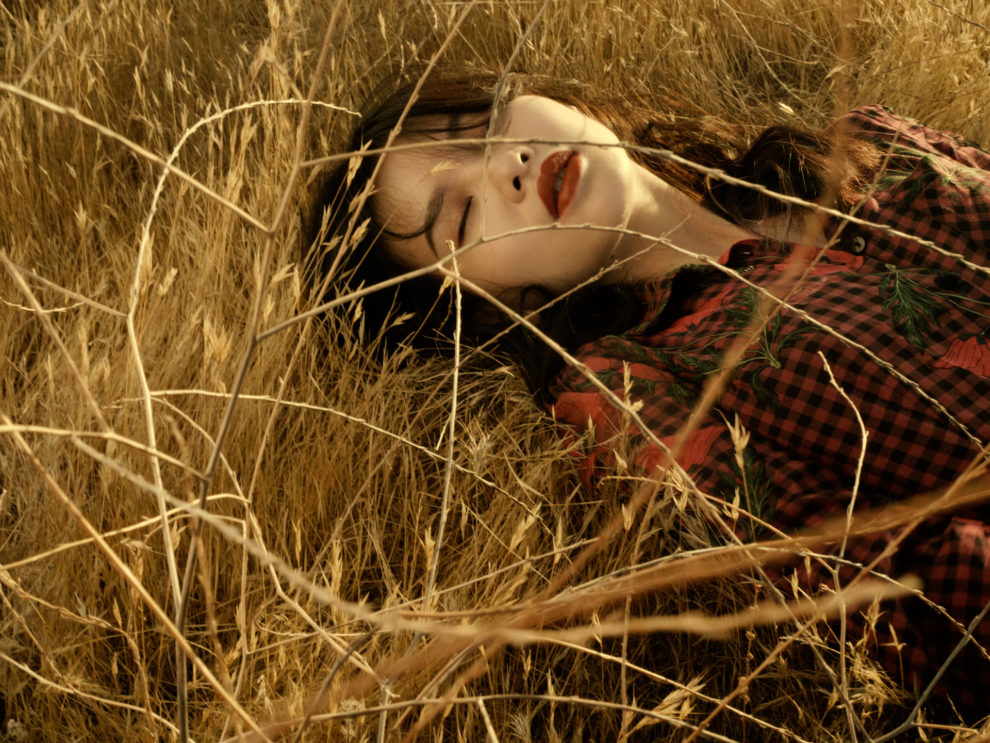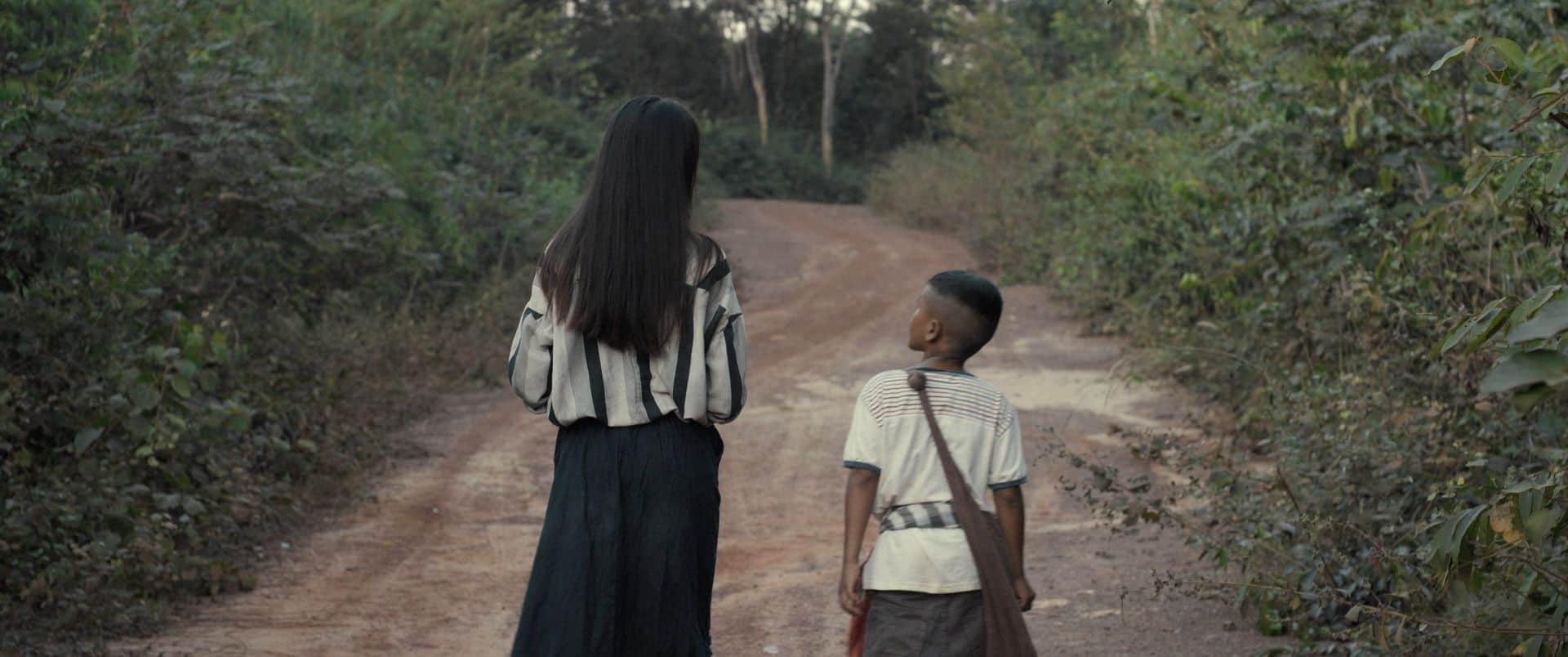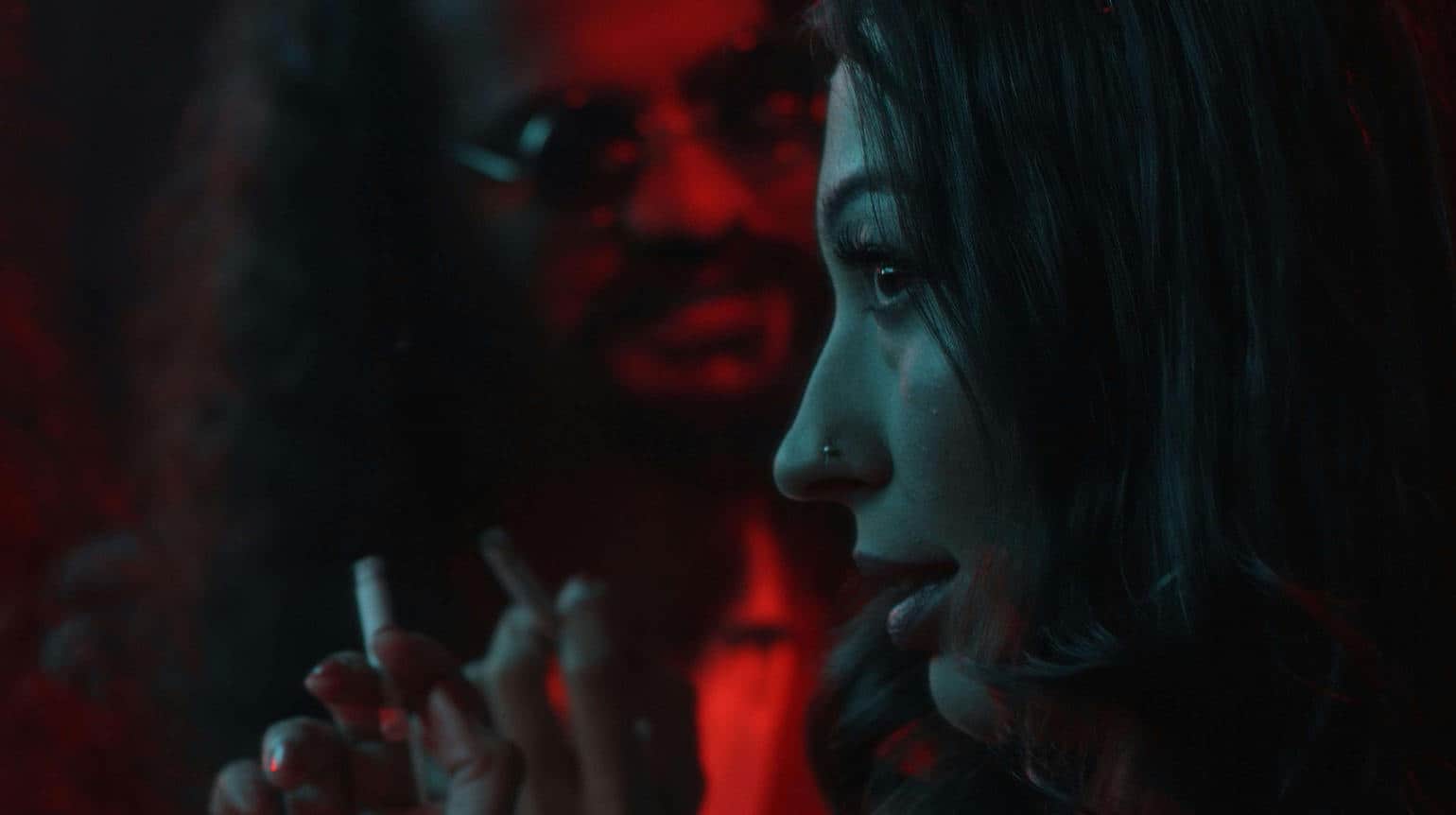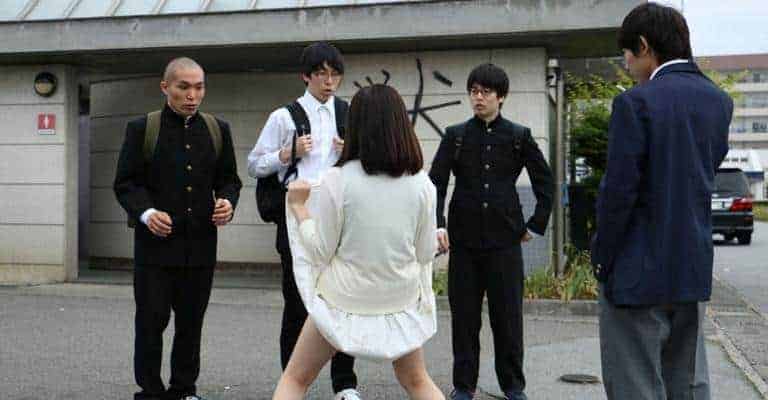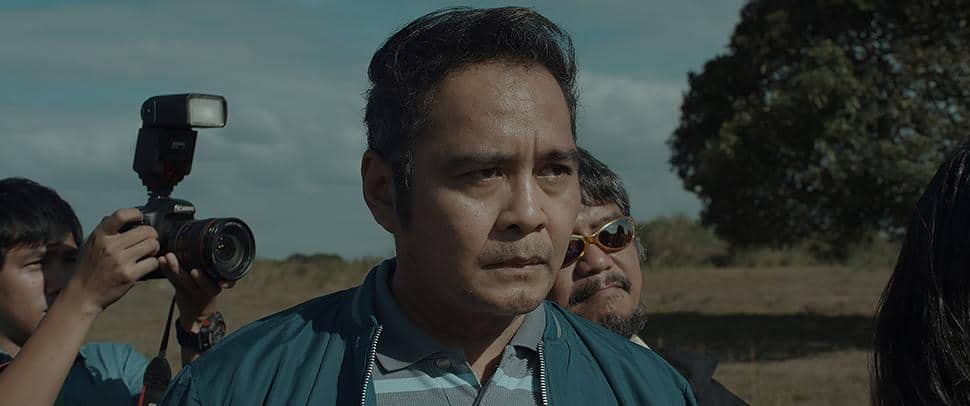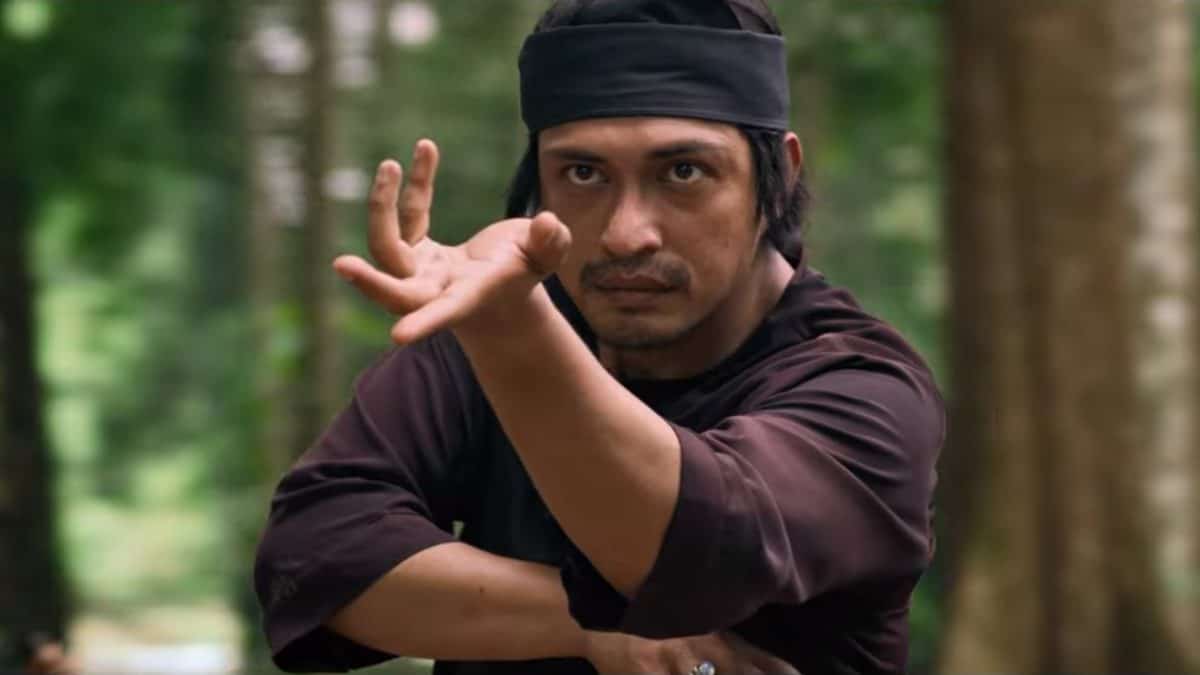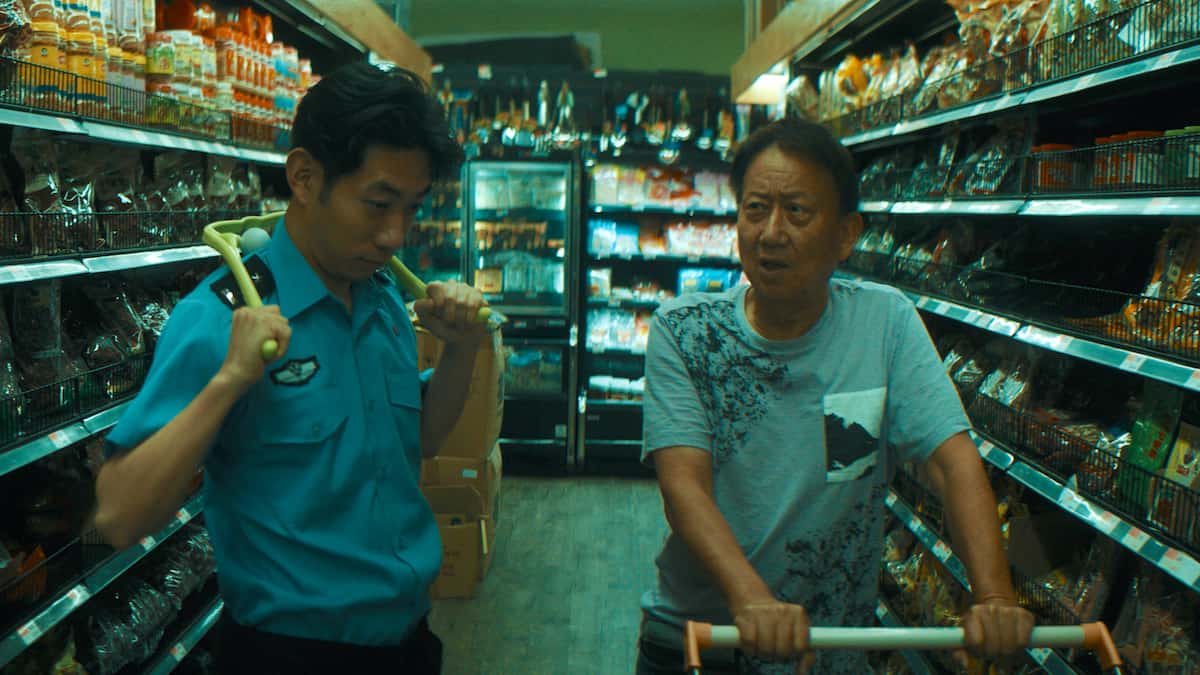The concept of immigration, and particularly the one from the East to the West is a rather timely one, considering all that is happening in the Asian-American front lately. Shan Wu implements an experimental approach to the topic, by focusing on the inequality between genders and between citizens and immigrants, which, in this case, also derives from the people who find themselves on the wrong side of the balance.
“Wild Grass” is screening at Vienna Shorts

In a 4:3 ratio, and after an impressive introduction with Chinese calligraphy moving from left to write on screen, and the sound of a butterfly desperately flapping her winds trying to get free, probably mirroring the protagonist, we are introduced to the story of a Taiwanese woman, who is preparing to move from her country to Los Angeles. As she states that she has learnt much of her English by watching subtitled trash programs on TV, which are actually presented on screen, one of the first comments here also appears. The sexualization of women seems to be everywhere; on the TV, the billboards on the street, and also on the protagonist herself, who obviously takes care of herself to meet the standards of beauty society demands from her.
As soon as she arrives in the US, she finds herself being the recipient of politeness from her flatmate, to whom she introduces herself as Erica, in an effort to appear westernized and fit in. The issues she has with language and her lack of a car make her dependant on others, and since the man helps her, she falls in love with him almost inevitably. At the same time, her difficulties make her take a look inwards, and realize her Taiwanese ancestry has shaped her in ways she did not even realize up to that point. As sex becomes a factor, so do the “repercussions” of her period, as the butterfly eventually is drowned in a sea blood.
Through a rather experimental approach, which includes narration that does not always fit the images depicted on screen, Shan Wu presents the story of a woman who is facing a crisis of identity, which derives from both her sex and her will to become beautiful in order to please, and her status as an immigrant. The difficulties people who cannot speak the language of the country they live in face are highlighted as much the ways that one's origin can shape him/her in ways that are very hard to realize. That her evident beauty eventually provides a solution to her problems speaks volumes about the ways the world works, and particularly how men are “destined” to provide and women to be beautiful and be taken care of.
In a rather meta approach, the director has extended this effort at being appealing and exploiting the fact to the the movie, filling it with stills of extreme beauty, which occasionally are presented in slideshow fashion. The scenes through glasses, the photographs of the waves the protagonist hangs on her windows, the many faces of the desert and the sky, the sequence with the fridge, the focus on her impressive fingers, even the butterfly at the end all point towards the same direction, resulting in a truly appealing short, where the allure though, also has a contextual meaning. The scene where she looks impeccable in her pastel colored clothes, which even include the bags and the umbrella she is carrying, highlight this approach, since her helplessness and need to be saved is also evident.
In that regard, the work by Ai Chung in the cinematography is as impressive as Drew Cavicchi's still photography, while the excellent efforts by Jessie Chen in the art direction and Pei Yu Lai in the lighting are captured and implemented impressively throughout the film. Shan Wu's editing connects the various segments through a relative fast pace that allows the short to be watched rather easily, despite its experimental approach. Pei Yu Lai manages to communicate all the aforementioned comments without speaking, benefiting the most by her undeniable beauty that also works well on the sensuality that is also part of the narrative, and the overall artistry her every movement is captured.
“Wild Grass” is not a movie for everyone, with the approach Shan Wu implementing being rather poetic, experimental and occasionally abstract, and the comments demanding particular attention and maybe multiple views to be understood. However, the beauty and artistry that surrounds every frame is more than evident, resulting in a short that will appeal intently even to the people who will not understand it fully.


